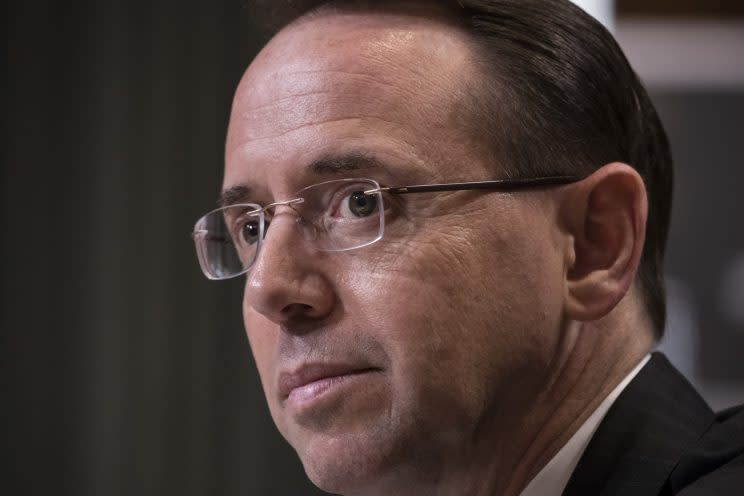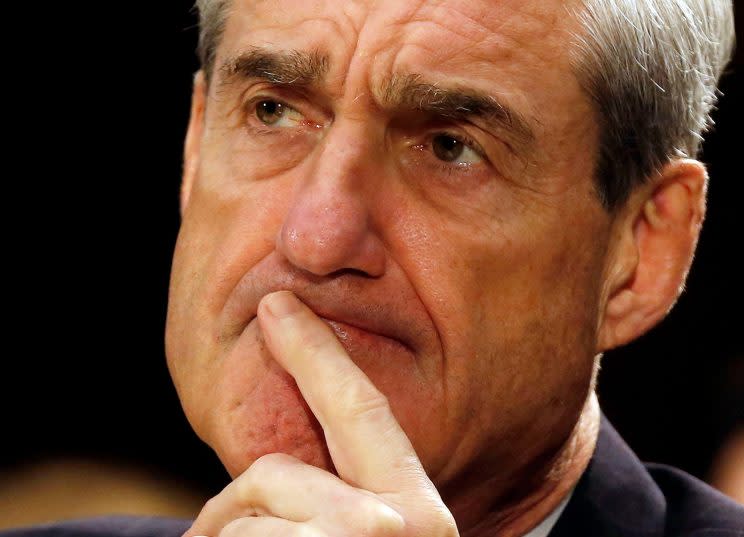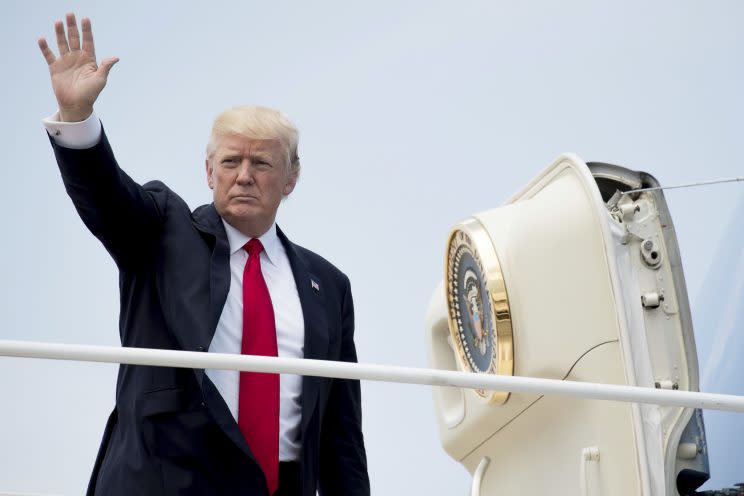Could Donald Trump fire special counsel Robert Mueller?
Washington is abuzz with rumors that President Trump is considering dismissing Robert Mueller as special counsel to the Justice Department for its investigation of Russian interference with the 2016 presidential election.
On Monday, after spending hours at the White House, a longtime friend of Trump’s, Newsmax CEO Chris Ruddy, told the “PBS NewsHour” that he thinks Trump is weighing the possibility of firing Mueller.
“I think he’s considering perhaps terminating the special counsel. I think he’s weighing that option,” Ruddy said. “I think it’s pretty clear by what one of his lawyers said on television recently. I personally think it would be a very significant mistake, even though I don’t think there’s a justification [for a special counsel].”
Among other concerns, this statement set off a barrage of questions about whether Trump even has the authority to fire a special counsel appointed by the Justice Department. Though Trump’s penchant for firing people is well known, its scope has some limits.
According to legal experts, the decision to fire Mueller would be up to the U.S. attorney general. But Jeff Sessions has already recused himself from the Russia investigation.
That means the decision would fall to the department’s No. 2 official, Deputy Attorney General Rod Rosenstein, who appointed Mueller on May 17.

Jonathan Turley, a professor of law at George Washington University Law School, explained that the special counsel is allowed to continue in his role unless there is “good cause” for his termination.
“As the head of the executive branch, Trump can claim the authority to fire any executive officer,” Turley told Yahoo News. “However, both the attorney general and the deputy attorney general have their own independent obligations. The actual firing of Mueller would have to be done by Mr. Rosenstein.”

Turley said that with the expiration of the independent counsel act, which was passed in the aftermath of the Watergate scandal, Trump would be in a similar position to Richard Nixon during that investigation.
On Oct. 20, 1973, Nixon ordered Attorney General Elliot Richardson to fire independent special prosecutor Archibald Cox, who was overseeing the federal criminal investigation into the Watergate burglary and related criminal activities. Richardson refused.
With Richardson’s resignation, it was up to Deputy Attorney General William Ruckelshaus to carry out Nixon’s order. Ruckelshaus also refused and resigned.
Then Nixon’s order fell to Solicitor General Robert Bork, who was acting head of the Justice Department. He obliged and fired Cox. This chain of events went down in history as the Saturday Night Massacre.
On Tuesday morning, Rosenstein testified before the Senate Appropriations Committee that he would fire Mueller only with “good cause.”
Turley is confident that Rosenstein is telling the truth and doubts that Trump wants another Saturday Night Massacre on his hands.
“I have no question at all that Rosenstein would resign absent evidence of good cause to fire Mueller. If he did not, he would shred every ounce of his reputation that he has earned over the course of decades of service,” Turley said. “Trump could certainly go down the same path as Richard Nixon, but that path leads to a place I doubt Trump wants to go.”

Read more from Yahoo News:


